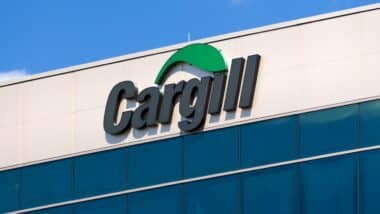 A Fair Debt Collection Practices Act (FDCPA) lawsuit was filed against Northland Group Inc. by a New York woman who alleges the company engaged in abusive debt collecting methods by exposing her personal information.
A Fair Debt Collection Practices Act (FDCPA) lawsuit was filed against Northland Group Inc. by a New York woman who alleges the company engaged in abusive debt collecting methods by exposing her personal information.
Plaintiff Shaya B. alleges she started receiving debt collection notices from Northland in January 2014. Visible through a clear window envelope was the plaintiff’s account number, as well as the plaintiff’s name and address, according to her FDCPA lawsuit.
Because of the type of envelope Northland used to send the letter, any person handling Shaya’s mail would have been able to see her account number and that a debt was being collected, allegedly in violation of federal law. Her FDCPA lawsuit alleges sending the notices that way was a deliberate form of harassment in order to make her feel more compelled to pay the debt.
The FDCPA specifically addresses the importance of protecting the consumer’s right to privacy: “Using any language or symbol, other than the debt collector’s address, on any envelope when communicating with a consumer by use of the mails or by telegram, except that a debt collector may use his business name if such name does not indicate that he is in the debt collection business.”
This FDCPA Lawsuit is Case No. 1:15-cv-00774-WFK-LB, in the U.S. District Court of Eastern New York.
Overview of FDCPA Allegations
The FDCPA was established to protect American consumers from aggressive and unfair debt collection practices.
Under the FDCPA, any party or person that attempts to collect a debt on behalf of themselves or another business is considered a debt collector. They have to follow specific rules about what type of debt can be collected and how it is approached.
For example, the collector must be sure the debt is still owed. And, information must be provided to the debtor about how to challenge the debt.
If consumers believe they may be victims of FDCPA violations, they are encouraged to contact lawyers who specialize in filing FDCPA lawsuits.
Join a Free Unfair Debt Collection Class Action Lawsuit Investigation
If a lender or debt collector engaged in unfair debt collection practices, you may have a legal claim and could be owed compensation for violations of the Fair Debt Collection Practices Act (FDCPA).
DISCLAIMER: Debt collection itself is not illegal. However, debt collection firms collecting on consumer debts must adhere to the FDCPA. Even though debt attorneys are investigating these companies, their debt collection practices may be legal.
ATTORNEY ADVERTISING
Top Class Actions is a Proud Member of the American Bar Association
LEGAL INFORMATION IS NOT LEGAL ADVICE
Top Class Actions Legal Statement
©2008 – 2025 Top Class Actions® LLC
Various Trademarks held by their respective owners
This website is not intended for viewing or usage by European Union citizens.














